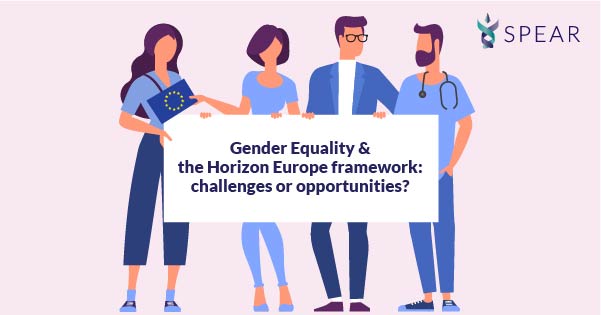The social movements that gained momentum over the last few years highlighted some gender issues perpetuated for decades in our societies. That often calls into question some basic rights regarding equal treatment between women and men. In any case, when the opportunity presents itself, women assert themselves and stand out in multiple areas. Nevertheless, in order for them to be not the exception – but the rule, it is necessary to create the necessary conditions to evolve, develop prevention mechanisms and involve the community in a combined action.
The complexity of gender issues is so broad that tackling one challenge at a time makes it an almost herculean task. The microenvironment of Higher Education Institutions (HEIs) is very peculiar, as it requires a targeted approach towards academic and research issues, without missing the administrative issues and students. The message must be comprehensive enough to ensure that it reaches all members of the community and that it covers most of the challenges posed by them, without losing the capacity to give a tailored response.
New opportunities are in our sight with the new Horizon Europe (HEU) framework launched in early 2021. As far as GE is concerned, the last framework – Horizon 2020 – brought the gender topic to the Research & Innovation limelight, while the new framework brings stability and the possibility of funding, networking and research opportunities in the area of Gender Studies. Furthermore, the new HEU framework has established new eligibility criteria to access European funds and that aim to address the gender issues in HEIs and Research Performing Organisations (RPOs).
The European Union (EU), committed to promoting GE in Academia and Research and for all Member-States has a strategy to develop more comprehensive policies. Furthermore, the EU has a well-established gender framework aiming to address challenges resulting from the pay gap and all the structural barriers that still persist in Academia and Research. In addition, the creation of the European Research Area (ERA) has allowed the European Commission (EC) to address the gender topic from a collaborative perspective between Member-States, HEI and RI.
As the Commissioner for Innovation, Research, Culture, Education and Youth – Mariya Gabriel, stated, it is imperative to “step up our efforts on gender equality and support more talented women in research and innovation”. Moreover, as the EC has set policies that ensure the full integration of the gender dimension into research and innovation and that these are going to be supported by the HEU framework, it is also of utmost importance to enhance the societal relevance of research and innovation. This more inclusive, collaborative and multi-dimensional society will overcome multiple challenges by integrating the gender dimension in research. This adds value in terms of excellence, creativity and business opportunities, and gives an in-depth understanding of people’s needs, behaviours and attitudes. Furthermore, this new perspective on the gender topic aims to potentiate the development and implementation of Gender Equality Plans (GEP) in HEI and RPO. Hence, the gender topic will no longer be neglected with regard to the regulation of evaluation criteria for career progression and talent retention as a result of specific funding and development of new, more inclusive policies in the ERA.
The new HEU framework reaffirms GE as a priority, and considers it a building block in the construction of a robust ERA and EC. Intersecting with all socioeconomic sectors, and through research and innovation, the HEU framework sets GE as a fundamental principle that has persisted through unconscious bias and structural barriers. HEU framework also aims to empower women through multiple measures and initiatives, including entrepreneurship-driven activities and innovation prizes. Particular attention should be given to the gender balance among researchers involved in evaluation panels and advisory boards and research projects.
It is clear that the new gender equality strategy 2020-2025 defined by the EC actually represents a huge opportunity, not only for the HEIs and RPOs that have already started to develop a path towards more equal and inclusive entities, but also opens doors for the ones that only now will start their first steps. It is also well-known that the development and implementation of an institutional GEP will be imperative in 2022 for RPOs and public bodies to have access to European funding. Since we are still in a very early stage of this strategy, the following questions arise at this point: is the commitment towards GE by HEIs and RPOs based on the opportunity to make the change for a more balanced atmosphere, or is it just to meet the eligibility criteria imposed by the HEU framework?


